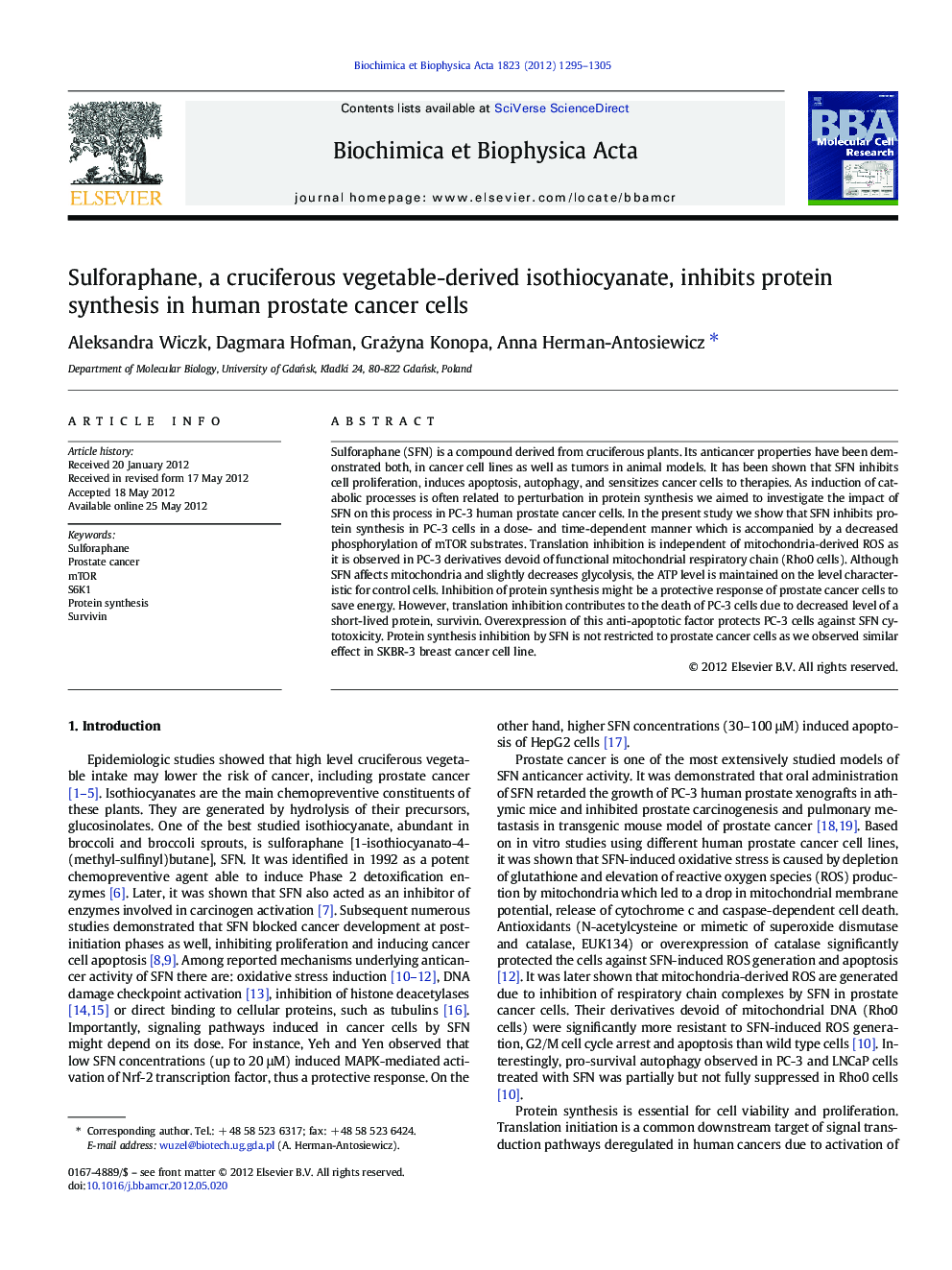| کد مقاله | کد نشریه | سال انتشار | مقاله انگلیسی | نسخه تمام متن |
|---|---|---|---|---|
| 1950687 | 1055691 | 2012 | 11 صفحه PDF | دانلود رایگان |

Sulforaphane (SFN) is a compound derived from cruciferous plants. Its anticancer properties have been demonstrated both, in cancer cell lines as well as tumors in animal models. It has been shown that SFN inhibits cell proliferation, induces apoptosis, autophagy, and sensitizes cancer cells to therapies. As induction of catabolic processes is often related to perturbation in protein synthesis we aimed to investigate the impact of SFN on this process in PC-3 human prostate cancer cells. In the present study we show that SFN inhibits protein synthesis in PC-3 cells in a dose- and time-dependent manner which is accompanied by a decreased phosphorylation of mTOR substrates. Translation inhibition is independent of mitochondria‐derived ROS as it is observed in PC-3 derivatives devoid of functional mitochondrial respiratory chain (Rho0 cells). Although SFN affects mitochondria and slightly decreases glycolysis, the ATP level is maintained on the level characteristic for control cells. Inhibition of protein synthesis might be a protective response of prostate cancer cells to save energy. However, translation inhibition contributes to the death of PC-3 cells due to decreased level of a short-lived protein, survivin. Overexpression of this anti-apoptotic factor protects PC-3 cells against SFN cytotoxicity. Protein synthesis inhibition by SFN is not restricted to prostate cancer cells as we observed similar effect in SKBR-3 breast cancer cell line.
► Sulforaphane disturbs signal transduction between mTOR and its substrates.
► It results in a drop in protein synthesis in prostate and breast cancer cells.
► Translation inhibition might be a protective response to save ATP level.
► Prolonged translation inhibition leads to depletion of anti-apoptotic survivin.
Journal: Biochimica et Biophysica Acta (BBA) - Molecular Cell Research - Volume 1823, Issue 8, August 2012, Pages 1295–1305